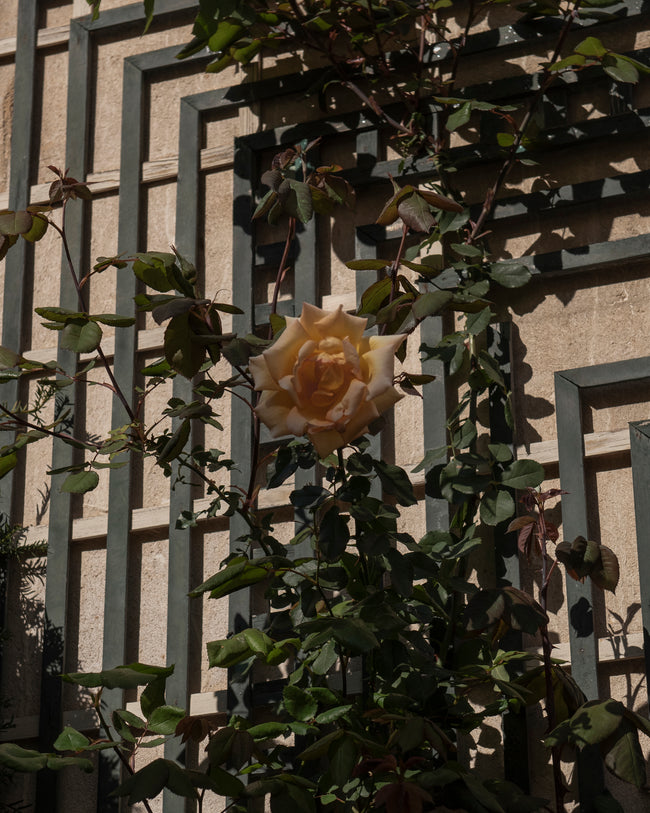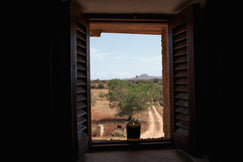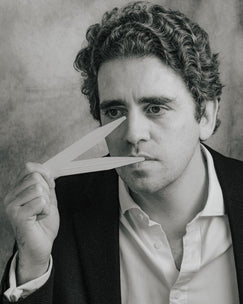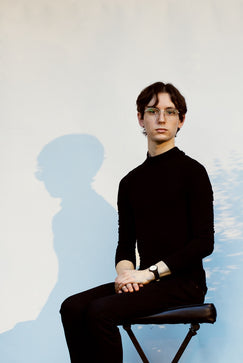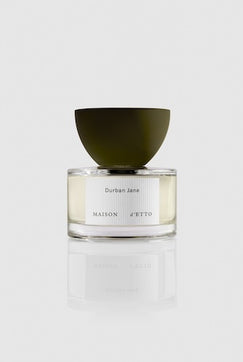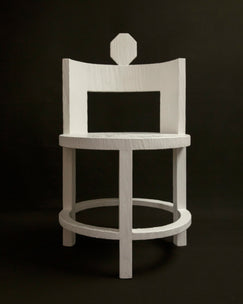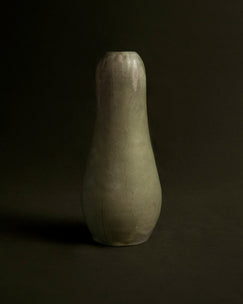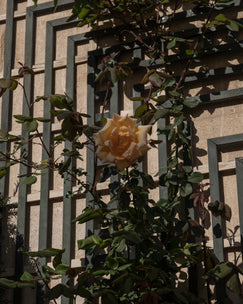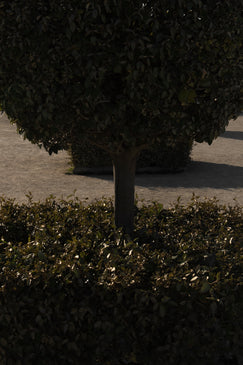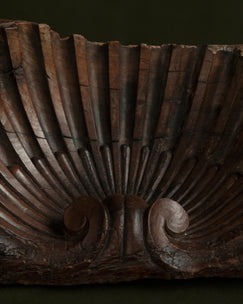I first met Courtney Maum, an award winning novelist, at a barn party in Litchfield, CT where—unbeknownst to each other—we were both riding at the time. Courtney was newly back into riding as an adult, and we both had daughters young enough that they were clutching at our legs. Though we had crossover in our respective creative industries, it was our love for all things horses that bonded us together.
Her works are among some of my most cherished, Costalegre is an all time favorite. It is a novel heavily inspired by the real-life relationship between the heiress Peggy Guggenheim and her daughter Pegeen. When Courtney published her fifth book—but first memoir—called The Year of The Horses, I knew I wanted to share the book’s messages about independence, way-finding, and the preservation of joy and magic with our community.
The Year of The Horses, which was picked by The Today Show as their top pick for mental health awareness, opens when Courtney is in a dark time of her life, physically faltering from chronic insomnia and struggling professionally with a book she’s under contract for, but can’t get right. As she goes from specialist to specialist, trying to find a solution for her fraying nerves and failing marriage, she schedules a riding lesson at a nearby farm even though she hasn’t been on or near a horse in over thirty years. Thus begins a journey toward wellness, confidence and sensuality that will change the course of Courtney’s life. Pairing her own experience with reported research on the cultural attempts to tame both women and horses throughout history, The Year of The Horses is—in the words of bestselling author Lisa Taddeo—“a memoir of power and beauty and pain that moves across the world like the beautiful horses that carry it.”
We’re thrilled to share our interview with Courtney and announce that, in anticipation of Mother's Day, we are also gifting a signed copy of her memoir, The Year of The Horses, with each purchase of a full sized fragrance from 4/23 until Mother's Day, 5/12.
MDE: Let’s start with the naming strategy for ETTO. You were the one that came up with the word ETTO. Can you explain what that term meant to you then, and what it means to you, now?
I came to the word “etto,” which is a made-up word, or what we call in the industry an “abstract” word, by playing around with the real words “ethics” and “motto.” Both these words speak to holding values, beliefs, and principles, to staying true to oneself no matter what. “Etto” is a combination of these principles and words, and it has great mouth feel! Plus, it’s a beautiful word to look at with the two “t”s in the middle, and it’s owneable. It belongs to Maison d’Etto, and nobody else. This is how I think of the brand today and the sensual experiences you offer people—unique moments that are deeply intimate and sacred, and entirely one’s own.
MDE: I know from our conversations that scent has been an important part of your world for a long time. Can you talk about your relationship to fragrance?
Whether it’s for a branding campaign or in a novel, writing about scent is so damn hard! Fragrance is so personal and sensual; it’s wrapped up in people’s memories and aspirations and their erotic longings. My first introduction to fragrance, like with many people I imagine, was through the perfumes and colognes my parents wore. My dad was—and still is—a Polo Green by Ralph Lauren man—Freud might say that it was this fragrance that drove me to the sport—and my mother was a Chanel No. 5 wearer. Chanel No. 5 was too harsh for me—I was beguiled by my friends’ mothers who wore White Linen by Estée Lauder. To me, that was the scent of perfect femininity: softness, grace and self-effacement. Please note: I no longer think of motherhood and femininity that way now! It was a conception I had when I was young of what it meant and looked like to be a mother, because the women around me in 1980s Greenwich sacrificed so much to be “perfect” wives and moms.
Nowadays? I like scents that some might consider “ugly beautiful.” I think a fragrance finds you, and when I first smelled the MDE line-up, I thought, “I have been found.” My absolute favorite scent is the hay-bright, horsey Macanudo, though when I’m writing, I burn the “Rotano” candle, which is single-handedly seeing me through the writing of what I hope is my sixth book!
MDE: Speaking of horses, why do you think some people are drawn to horses generally, and what is it about horses that specifically speaks to you?
This is the million-dollar question I try to answer in my book. My answer changes as I grow older and am learning to simplify and do what makes me happy, but right now, what I appreciate about horses is that they don’t ask anything of me. Yes, they need me to provide food, shelter and access to other horses, but they’re certainly not the ones begging me for this or that rain sheet—those decisions are things that I’m imposing on the horse. Really, what I mean by them not asking anything of me, is that day in and out, they are content to just be, which allows me to be, also. As a mother and a person with a full-time job, I don’t get a lot of time to “be.” I’m constantly being asked for things, constantly being asked to make decisions, to “weigh in,” to “circle back.” I’m terrible at meditation, I haven’t done yoga in a decade, but I can sit and watch a horse graze for hours. Really. Barn time is my church. Horses bring me peace, they bring me silence, they quiet all the worries I have about America and the environment and the state of womens’ rights and my own creative work. Horses bring me gratitude. Gratitude for nature, how beautiful this earth of ours still is. They remind me that at the end of the day, the only things we really truly need are companionship, food, and shelter. Honestly, that’s it. Horses want friends, they want food, they want a place for shade, and a nice roll in the mud from time to time. I learn so much about prioritization from these majestic creatures.
MDE: What about your relationship to riding? What’s going on in your equestrian life right now?
After a three-year saga with an abused racehorse that I rescued who was way above my paygrade in terms of the skill-level needed to re-educate her (she was in her twenties, so a lot of her behavior was baked in) I’m beyond proud that Abuelita was accepted into the “Second Chances” program offered through the Thoroughbred Retirement Foundation. She will live out the rest of her life on a beautiful former dairy farm in Wallkill, NY where she’ll be working in a vocational capacity with a select group of inmates to help them learn how to take care of ex-racehorses physically and emotionally. As a chaser to the roller coaster ride I went on with Abuelita (who was a big, lanky, spicy chestnut mare), I am now leasing a 14.2 hand grey Connemara pony named Truffles, who is relatively easy unless we’re talking about trying to keep her clean during mud season ;)
MDE: Your memoir had crossover appeal with features in western outlets like Cowgirl Magazine, English publications like Sidelines and mainstream media like Vanity Fair. As us horsewomen know, it’s a rare thing to bridge the Western and English divide. Why do you think your book did?
Because my memoir is what’s considered a “hybrid memoir” that pairs my lived experience with reported research, that certainly gave it broader appeal than if I’d only written about one angle or the other. Additionally, the sport of polo sits between Western and English traditions. You ride one-handed, you ride out in a herd, you don’t use mounting blocks, you have a lot of barbeques—these practices come from the Western form of riding, while there are other elements (the tack, the cost, the pomp and circumstance of polo) that come from English habits. To enjoy my book, you don’t have to like horses or feel any particular way about them. You don’t have to be a mother, or want to be a parent. You don’t have to be a woman! You just have to know what it feels like to lose yourself a little, to lose the magic you might have felt when you were younger, and to want—urgently and desperately—to get that magic back.
